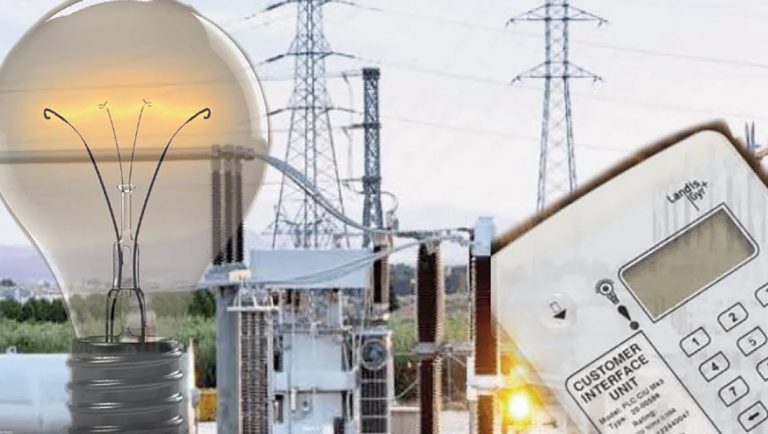Many electricity consumers defaulted in the payment of electricity supplied to them to the tune of N349 billion in the first nine months of 2024.
Only N1.189 trillion out of N1.538 trillion billed was collected by electricity distribution companies (DisCos).
BusinessDay’s analysis of the first, second and third quarter 2024 report as published by the Nigerian Electricity Regulatory Commission (NERC) showed that the total revenue collected by the eleven DisCos in the first quarter (Q1) of 2024 was N291.62 billion out of N368.65 billion billed to customers.
The total energy received by all DisCos in the period was 7,171.93GWh while the energy billed to end-use customers was 5,769.52GWh, translating to an overall billing efficiency of 80.45 percent.
In the second quarter of 2024, the eleven DisCos recorded N431.16 billion as total revenue for the period, out of N543.64 billion billed to customers.
Also, the total energy received by all DisCos in 2024/Q2 was 6,914.39GWh while the energy billed to end-use customers was 5,693.11GWh, translating to an overall billing efficiency of 82.34 percent.
In the third quarter (Q3), the total revenue collected by all DisCos was N466.69, billion out of N626.02 billion billed to customers. The total energy received by all DisCos in 2024/Q3 was 7,606.84GWh while the energy billed to end-use customers was 6,249.21GWh, translating to an overall billing efficiency of 82.15 percent.
Poor revenue collection for electricity distributed has been identified as a major challenge bedeviling Nigeria’s power sector.
Commenting on the poor revenue collection by DisCos, Richard Nelson, coordinator, Africa Power Initiative of United States Agency for International Development (USAID), in an interview with BusinessDay, stated with the right payment system for electricity consumed, Nigeria has the ability to produce 12 gigawatts of power.
“But they are only producing about four gigawatts and that’s not because there is insufficient demand. I mean, given the size of Nigeria’s electricity market, you look at all the generators people are using, if you look at that demand, it’s in the scores of gigawatts but the issue is more of a financial breakdown.”
He hinted that the Power Africa programme of USAID is focused on improving DISCO’s ability to collect revenue to cover their costs and pay their suppliers for energy distribution.
According to Nelson, the inability of DisCos to ensure full revenue collection and cover up their costs of distribution impedes their ability to pay up obligations to generation companies.
“So the suppliers will not send them power. They are only going to send them enough for what they will get paid for. It’s a full chain effect. And so then those producers of power, most of which are gas, are not going to buy gas, then the gas companies are not going to sell,” he said.
According to NERC, the most proven methods to improve energy accounting and revenue recovery are accurate customer enumeration and installation of end-use customer meters.
Nigeria, with a population of over 200 million people, had only 13,339,635 registered electricity customers across the 12 DisCos, out of which 6,156,726 (46.15 percent) were metered as of 30th September 2024.
To drive this, the Commission issued the Order on the Operationalization of Tranche A of the Meter Acquisition Fund (MAF) in 2024/Q2. The Order, which became effective on June 24, 2024 directed DisCos to utilise the first tranche of disbursement from the MAF scheme to procure and install meters for unmetered Band A customers within their franchise areas.
According to an Order on the ‘operationalization of Tranche A of the Meter Acquisition Fund’ issued by NERC and sighted by BusinessDay, of the total sum, Abuja Electricity Distribution Company (AEDC) received N2.99 billion; Benin Electricity Distribution Company (BEDC), N1.57 billion; Eko Electricity Distribution Company (EKEDC), N2.92 billion; Enugu Electricity Distribution Company (EEDC), N1.72 billion; Ibadan Electricity Distribution Company (IBEDC), N2.51 billion.
Total amounts received by other DisCos were: Ikeja Electricity Distribution Company (IE), N4.35 billion; Jos Electricity Distribution Company (JEDC), N521 million; Kaduna Electricity Distribution Company (KAEDC), N1.22 billion; Kano Electricity Distribution Company (KEDCO), N1.56 billion; Port Harcourt Electricity Distribution Company (PHEDC), N1.36 billion; and Yola Electricity Distribution Company (YEDC), N243 million.
The DisCos, according to the Commission, are also expected to continue to utilise one or more metering frameworks provided for in the NERC MAP and NMMP metering regulation (2021) to improve end-use customer metering in their franchise area. This will reduce commercial and collection losses, thereby improving the flow of funds to upstream market participants in the industry.
